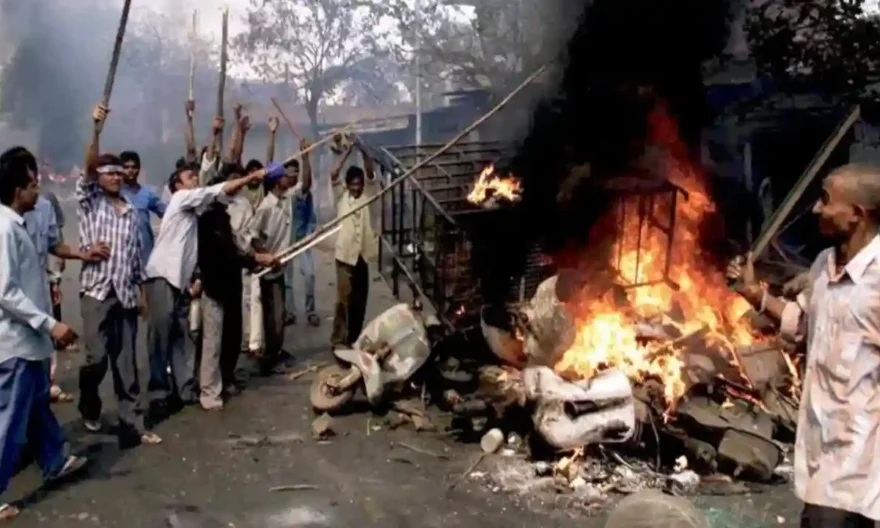
A special court in Mumbai recently announced that it would pronounce its judgement on two accused named Harshad Ravjibhai Solanki and Mafat Manilal Gohil in the Best Bakery case, which resulted in the deaths of 14 people.
What is the Best Bakery Case?
The Best Bakery case pertains to a Vadodara bakery that was set on fire by a crowd during the Gujarat riots in 2002, resulting in the deaths of 14 people. Zaheera Sheikh, the daughter of the bakery owner, had filed a police complaint against 21 people.
When the Fast Track Court acquitted all of the accused in June 2003, it cited a lack of evidence because key witnesses, including Sheikh, had become hostile.
However, Sheikh, with the assistance of activist Teesta Setalvad, approached the Supreme Court after the Gujarat High Court upheld the trial court’s decision. The Supreme Court ordered a retrial and moved the trial to Mumbai.
Between their acquittal by the Baroda court and their retrial in Mumbai, on December 13, 2013, the accused Harshad Ravjibhai Solanki and Mafat Manilal Gohil were sent to judicial custody and have been imprisoned since the last 10 years. According to the accused, they and 19 other people were previously charged by a Fast Track Court in Gujarat’ Baroda and were later discharged in 2003.
The trial in Mumbai of 21 accused resulted in the conviction of nine people in the case.
Advocate Prakash Salsingikar, who represented Gohil, and advocate Sanjeev Punalekar, who represented Solanki, did not challenge the deaths in the Best bakery case. The prosecution was only required to bring witnesses to determine the role of the accused and was not required to prove the entire case.
As some of the officers investigating the case had also died, the prosecution called ten witnesses to prove Solanki and Gohil’s involvement in the case.
The prosecution found four eyewitnesses out of the ten witnesses, but only three of them appeared in court. Solanki could not be identified by the three eyewitnesses. One of them, however, recognised Gohli but couldn’t recall his name or the role he had played in the riot.
Salsingikar contended before the court that because the eyewitness and Gohil used to live in the same neighbourhood, the chances of them recognising each other were high even after nearly 21 years, but his deposition was not incriminating evidence against his client.
After two weeks, the special court will issue its decision against Solanki and Gohil.




